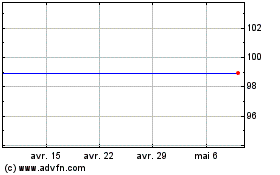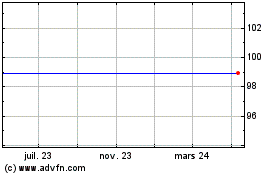Judge backs $80 billion Time Warner deal as media companies eye
wave of consolidation
By Brent Kendall and Drew FitzGerald
This article is being republished as part of our daily
reproduction of WSJ.com articles that also appeared in the U.S.
print edition of The Wall Street Journal (June 13, 2018).
WASHINGTON -- A federal judge ruled Tuesday that AT&T Inc.
can proceed with its blockbuster acquisition of Time Warner Inc.,
without any conditions, marking a historic defeat for the Justice
Department that could rewrite the media landscape and set the stage
for other deals.
U.S. District Judge Richard Leon told a packed courtroom that
the department hadn't proved its case that the deal would suppress
competition in the pay-TV industry.
At one point waving his 172-page opinion in the air, Judge Leon
declared: "The court has now spoken and the defendants have
won."
The moment provided a final act of drama in a case that carried
the highest stakes for the two companies, their leaders and the
Trump administration's antitrust enforcement. President Donald
Trump was unusually direct in opposing the deal, both before and
after taking office, giving the case an unusual political cast.
The decision, in one of the biggest antitrust cases in decades,
is a milestone victory for AT&T as it looks to reposition
itself in a rapidly evolving media landscape. Its deal for Time
Warner, now valued at roughly $80 billion, has been pending since
October 2016.
The ruling could set off a round of media mergers. Other
companies have been waiting to see how the AT&T case turned
out, including Comcast Corp., which has been planning a bid to buy
the bulk of 21st Century Fox Inc.'s assets. The decision will give
ammunition to Comcast as its argues to Fox and its shareholders
that a tie-up between the companies could withstand a regulatory
review. A Comcast offer would disrupt Walt Disney Co.'s $52.4
billion all-stock deal with 21st Century Fox, announced in
December.
Underlining the magnitude of AT&T's victory, Judge Leon took
the unusual step of urging the government to let the companies
close their deal without further legal interference.
Judge Leon said he hoped the Justice Department would have the
"wisdom" not to seek an emergency stay of his ruling, saying such a
legal maneuver would be "manifestly unjust" to AT&T and Time
Warner.
The acquisition means that AT&T, already the nation's top
pay-TV distributor through its ownership of DirecTV, will now also
control some of cable TV's best-known channels, including HBO, CNN,
TNT and TBS, as well as the Warner Bros. TV and film studio.
Judge Leon made headlines during the trial when he questioned
whether a key Justice Department theory, backed by a well-respected
economist, was a Rube Goldberg contraption.
He went a step further Tuesday in his strongly worded opinion.
"In fairness to Mr. Goldberg, at least his contraptions would
normally move a pea from one side of a room to another," Judge Leon
wrote.
The decision hands the Justice Department's antitrust division
one of its most stinging losses ever.
"We are disappointed with the Court's decision today," Makan
Delrahim, chief of the Justice Department's antitrust division,
said in a statement shortly after the ruling. "We continue to
believe that the pay-TV market will be less competitive and less
innovative as a result of the proposed merger between AT&T and
Time Warner."
The department will review the ruling, he said, and "consider
next steps."
Mr. Delrahim attended Tuesday's hearing and sat stone-faced as
he listened, occasionally taking notes as the judge spoke. Some of
the 100 spectators in attendance had camped out overnight, or hired
line-standers, to win a seat. The judge barred people from the
leaving until he was done, and he commanded that there be no
celebrations -- or consolations -- in his courtroom. Everyone
abided by the orders.
Speaking to reporters outside the courthouse, AT&T's lead
attorney, Daniel Petrocelli, described the decision as "a sound and
proper rejection of all of the government's arguments to stop this
merger."
"We are elated," Time Warner spokesman Gary Ginsberg said
outside the courtroom. "We look forward to completing the
merger."
The Justice Department's concerns about the merger focused
heavily on its belief that AT&T would have the incentive and
ability to use Time Warner's Turner networks as a weapon against
DirecTV's cable and satellite television rivals. The department
argued that AT&T, which bought DirecTV in 2015, would be able
to use the threat of a Turner blackout to force rivals to pay
higher carriage fees for the networks, which would mean higher
prices for consumers.
Judge Leon disagreed, saying AT&T's rivals could compete
even if they didn't have Turner. He also rejected two other
government arguments: that AT&T might restrict rivals' use of
Time Warner's HBO, and that the postmerger company could impede
upstart online rivals offering video content on the internet.
The case marked the first time in 40 years that a court had seen
a fully litigated challenge to a so-called vertical merger that
combines companies at different links in the same supply chain.
Such cases are considered more difficult for the government to win
than the typical "horizontal" merger case, where the government
challenges the combination of two head-to-head rivals and the loss
of competition is more apparent.
Response to Judge Leon's verdict was brisk in after-hours
trading, with AT&T falling 2.8%; Time Warner rising 4.5%;
Comcast dropping 3%; and Disney sliding 1.7%.
The decision is a career-defining victory for AT&T CEO
Randall Stephenson, who refused the government's demands that
AT&T divest a major piece of Time Warner to get clearance for
the deal.
In less than three years, first with the purchase of DirecTV and
now Time Warner, the AT&T veteran has transformed the phone
carrier he inherited into one of the world's biggest entertainment
companies. But now he will need to deliver returns for shareholders
despite slowing growth in the wireless market and the rise of
cord-cutting and internet rivals.
For Time Warner's boss, Jeff Bewkes, the deal's approval
vindicates his strategy of dismantling the Time Warner empire,
spinning off assets such as AOL, Time Inc. and Time Warner Cable in
order to create the most attractive target for a potential
buyer.
AT&T said it plans to close the deal in coming days. Mr.
Stephenson, who has run AT&T since 2007, plans to make few
sudden changes to Time Warner's management, according to people
familiar with the matter. Mr. Bewkes is expected to leave the
company after a transition period.
The DOJ's loss Tuesday breaks a banner streak of success for the
department in blocking mergers that antitrust officials believed
were anticompetitive. In recent years the department felled two
major health insurance mergers, Anthem Inc.-Cigna Corp. and Aetna
Inc.-Humana Inc., the oil-field-services merger of Halliburton Co.
and Baker Hughes Inc. and another pay TV deal: Comcast's plan to
buy Time Warner Cable, a company that is separate from Time Warner
and has since been acquired by Charter Communications Inc.
Write to Brent Kendall at brent.kendall@wsj.com and Drew
FitzGerald at andrew.fitzgerald@wsj.com
(END) Dow Jones Newswires
June 13, 2018 02:47 ET (06:47 GMT)
Copyright (c) 2018 Dow Jones & Company, Inc.
Time Warner (NYSE:TWX)
Graphique Historique de l'Action
De Mai 2024 à Juin 2024

Time Warner (NYSE:TWX)
Graphique Historique de l'Action
De Juin 2023 à Juin 2024
